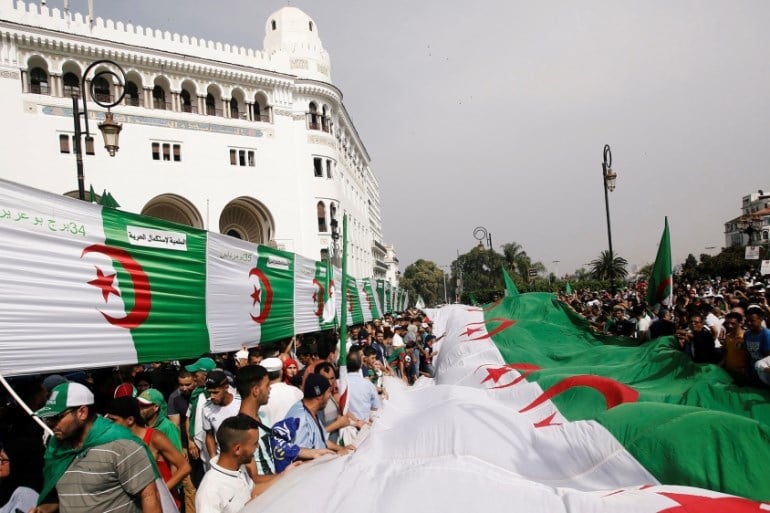Independent Algeria soon to be 60, colonial wounds still bleeding
With Algeria attaining its independence from France 60 years ago and paying dearly for it, the former colonial state still refuses to take responsibility for its atrocities.
-

Independent Algeria soon to be 60, colonial wounds still bleeding
On Tuesday, Algeria celebrates 60 years of independence from France, but the atrocities perpetrated during more than a century of colonial rule, without any responsibility upheld, continue to elicit deep diplomatic tensions.
On March 18, 1962, after close to eight years of war between Algerian revolutionaries and the French colonial army, fighting ceased after the signing of the historic Evian accords, which paved the way toward the announcement of Algeria's independence on July 5 that same year.
Algerians took part in a referendum a few days before the announcement, with 99.72% taking part to vote on their independence, but memories of the 132-year colonization continue to sour relations with France.
The country's authorities are planning to mark the anniversary with pomp and ceremony, capped by a vast military parade in Algiers, the first of its kind in 33 years.
Laid Rebiga, the minister for independence warriors, has also announced plans for a play at the capital's opera theater that will "retrace Algeria's long history."
To commemorate "a glorious history and a new era," the government has even commissioned a logo, a circle of 60 stars containing military personalities and equipment.
Algeria's independence struggle resulted in the death of hundreds of thousands of people. Despite that, a crisis was instigated late last year by French President Emmanuel Macron, which highlighted how volatile the topic remains six decades later.
Macron reportedly questioned Algeria's existence as a nation before the French colonization, accusing its "political-military system" of rewriting history and fomenting "hatred towards France." Algeria withdrew its ambassador in response.
"Relations between the power system in Algeria and 'official France' have been punctuated by crises and pseudo-reconciliations since independence," said Athmane Mazouz, head of Algeria's secularist opposition party RCD. "At this point, all bets are off on whether they can establish better ties."
Read next: Algeria: Dotting the I’s in France’s colonial history
The French atrocities in a nutshell
The colonial authorities committed horrific murders and massacres against Algerians. What happened in May 1945 is one of the most heinous examples of this. Algerians began organizing large-scale, nonviolent public gatherings, marches, and protests in various cities to demand independence and the release of imprisoned national leaders. The throng raised Algerian national flags. France responded with land, air, and naval forces opening fire on demonstrators and destroying entire villages and neighborhoods.
In addition to the killings, looting was a trait that accompanied the colonial state throughout its reign. The systematic plundering of Algeria's resources under the occupation included the exploitation of gold, iron, coal mines, and other minerals to service the French economy, as well as the grant of the most valuable agricultural fields to European settlers from France, Italy, Spain, and Malta.
To this day, Algeria is still suffering from the impacts of nuclear radiation, which resulted from a series of nuclear experiments that France conducted in the Algerian desert in the south of the country between 1958 and 1962. In the region, there are high rates of birth abnormalities, cancer, skin illness, and other disorders. According to multiple credible sources, France carried out at least 17 nuclear explosions in Algeria.
Read next: France refuses to apologize for its Algerian past
Three pending files from the colonial period
The first file discusses the Algerian National Archive, which includes millions of documents, records, and maps. However, France refuses to return it.
The second file concentrates on the retrieval of the skulls of Algerian revolution leaders, which are housed in the Museum of Mankind in Paris.
Lastly, around 2200 Algerians, primarily militants and revolutionary leaders, were seized and slain by French colonial authorities but were never recorded or accounted for.
That said, France refuses to accept responsibility for its atrocities and colonial history in Algeria. In fact, the French Parliament adopted a law for “glorifying the colonial past of France" in 2005, but it wasn't published in the Official Gazette to become effective fearing a major ricochet.
Read next: The quiet emigration of Muslims from France

 4 Min Read
4 Min Read








